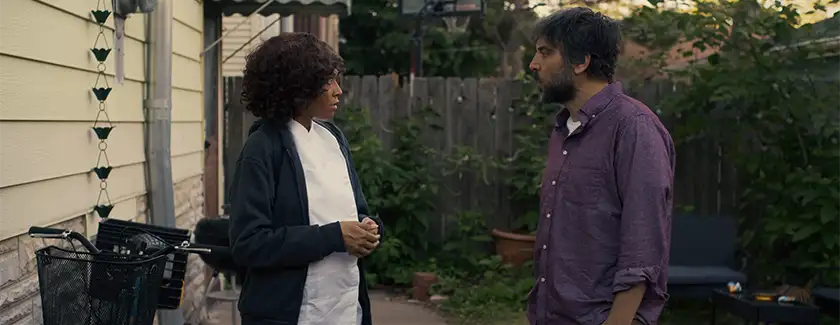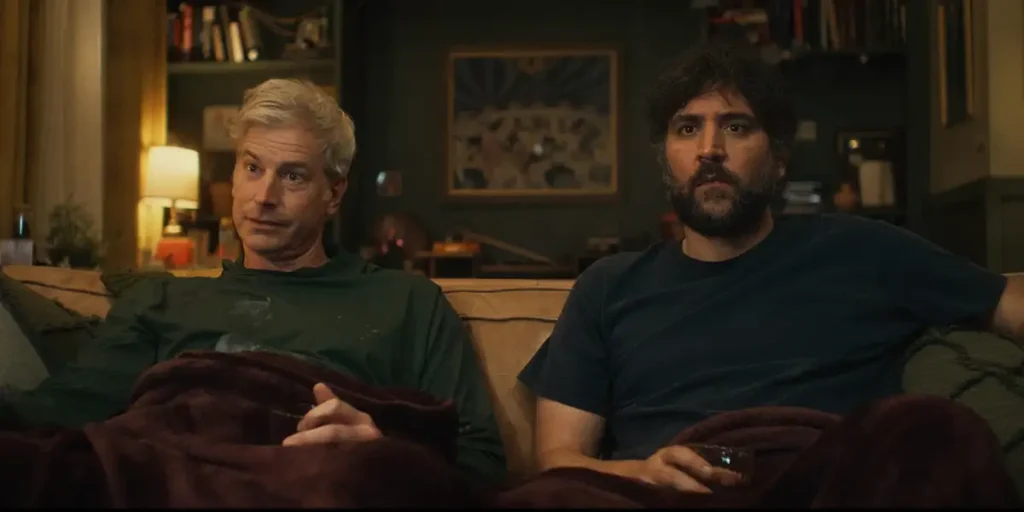Family dysfunction films can work, but All Happy Families suffers from its own dysfunctional filmmaking, relying too much on Josh Radnor’s talent.
Director: Haroula Rose
Genre: Comedy, Drama
Run Time: 90′
U.S. Release: October 18, 2024 in theaters, on digital & VOD; November 19, 2024 on DVD
U.K. Release: TBD
Where to Watch: on digital & VOD, and on DVD
The Landry family has some issues. All Happy Families makes that abundantly clear quite quickly. Graham (Josh Radnor), an aspiring writer and actor with a famous older brother (Rob Huebel), is attempting to rent out his childhood home, while also struggling with his love life. The older brother, Will, an actor, faces allegations of misconduct on the set of his popular TV show. And the parents (Becky Ann Baker and John Ashton) go through their own trials as they visit their adult sons.
Quickly added to the mix is Will’s transgender daughter, Evie (Ivy O’Brien), who is dealing with a complicated relationship with her father. Much dysfunction exists; unfortunately, the dysfunction on the filmmaking side keeps All Happy Families from achieving anything new or interesting.
With all of these family members bearing their own flaws and troubles, it quickly becomes difficult to figure out which character arc the audience should be latching onto. Are we to focus on Graham and his budding relationship with Dana (Chandra Russell)? Are we to focus on Will and the allegations that face him? Are we to focus on the parents? Are we to focus on Evie? The movie doesn’t seem to know which story is its main one, choosing instead to bounce awkwardly between all of them. Each story could have been effective on its own, but director Haroula Rose does not seem to know how to synthesize the overall narrative. The plotting and editing do little to help center any of these many ideas.
Along those lines, the film is clearly interested in addressing some important modern day issues. However, none of these themes are explored beyond surface level conversations. Because the plot itself is so scattered, the themes about identity, aging, and conflict do not go any deeper than some stilted dialogue around the family dinner table. The movie clearly wants to discuss gender, the fallout of the #MeToo Movement, and generational change, but because it’s trying to balance so many plots, the scenes that depict these ideas carry little weight.

Because the film doesn’t feel fully confident in the story it’s telling, it often relies on clichés often found in television sitcoms, leading to the occasional rapid tone shift. Radnor, perhaps most known for his role of Ted Mosby on How I Met Your Mother, excels in sitcom level humor. His interactions with a plumber (Antoine McKay), will elicit some laughs, as well as some facial expressions and off-the-cuff one-liners. Radnor alone makes All Happy Families worth watching, but even he is not able to salvage the clunkiness of the script. His humor and some of the movie’s lighter scenes are juxtaposed with some attempts at seriousness. But because the film cannot commit to one central message, these moments often fall flat.
The most disappointing films are ones where the viewers can see glimmers of a good story. All Happy Families certainly has that, paired with Radnor’s performance and a level of sincerity and care for its characters. Unfortunately, it simply tries to do too much with its brief 90 minutes, trying to encapsulate the entire American experience in the 2020s with half-baked ideas, sloppy pacing, and a script that tries to get at the real issues but ultimately fails to say anything of value.
All Happy Families opened in US theaters, on digital, and on demand on October 18, 2024 and will be released on DVD on November 19.

